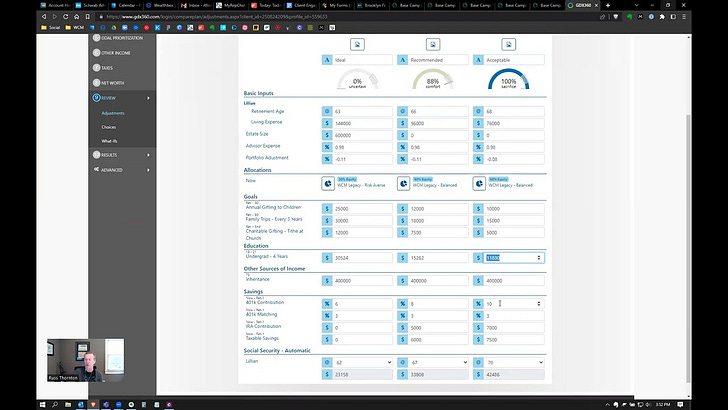
Good morning!
In 2020, the SECURE Act became law impacting retirement planning for many Americans.
I’ve addressed this previously on my podcast and in an essay:
And as many of my clients are well aware, there has been uncertainty on how best to tackle RMDs if you inherited an IRA from someone other than your spouse…
Thanks to the 2020 SECURE Act, the “stretch” IRA was eliminated for most non-spouse beneficiaries.
Let’s say your Mom or Dad passed away and left part of their IRA to you.
You would move this money into an inherited IRA account and take required minimum distributions (RMDs) each year for the remainder of your life.
This allowed you to “stretch” the IRA over the rest of your years.
But no more.
With the introduction of the SECURE Act, most non-spouse beneficiaries would now be required to distribute the IRA assets they inherited by the 10th year after the death of the original IRA account owner.
The uncertainty was around whether you would have to take an RMD each year or could wait and just take it all out by the end of year 10.
This created much confusion and head scratching about how and when to take RMDs if you inherited part or all of a retirement account from anyone other than your spouse.
Acknowledging this confusion, the IRS waived RMDs during the 10-year period for the years 2021, 2022, 2023, and 2024.
You can take money out of an inherited IRA any time you like.
This rule addresses how much you’re required to take out and when.
If you inherited an IRA after December 31, 2019 from someone other than your spouse, you’ll now have to take an RMD each year based on your life expectancy and have the IRA assets fully distributed from the account by the 10th anniversary of the original account owner’s death.
The IRS has said you can skip these RMDs for the years 2021 - 2024, but you’ll have to start taking out an RMD in 2025 and each year thereafter until the 10th year when the account will need to be emptied.
Of course, there are exceptions.
I keep referring to this impacting non-spouse beneficiaries.
Spousal beneficiaries can continue to “stretch” any inherited IRA assets over the remainder of their lives.
But they’re not the only folks that can still stretch their inherited IRA assets.
Minor children (until they reach adulthood), disabled or chronically ill individuals, and beneficiaries not more than 10 years younger than the deceased are all considered Eligible Designated Beneficiaries (EDBs) and don’t have to follow this 10-year distribution rule.
Confused yet?
Here’s an more practical example, courtesy of this Ed Slott article:
Karen inherited a traditional IRA from her mother Linda, who died at age 85 in 2020. Under the SECURE Act, Karen is subject to the 10-year rule. She must empty the inherited IRA account by December 31, 2030. The new IRS final regulations also require her to take annual RMDs based on her life expectancy in years one through nine of the 10-year payout period. Due to the IRS waiver of the penalties for missed RMDs in years 2021, 2022, 2023, and 2024, Karen does not need to take RMDs for those years. However, beginning in 2025 she must take an annual RMD for years 2025-2029 from the inherited IRA.
There are other details involved in the finalization of the IRS rules including the utilization of trusts.
If you’d like to read more on this topic, here’s a good overview from Kiplinger:
Or instead of keeping up with the ever-changing landscape of retirement planning, tax legislation, estate planning, and more, you could seek the help of an experienced retirement planning advisor.
If you’re interested, I know someone that can help 😉
Links & Things
Most people are familiar with Warren Buffett.
But you might not know the name Charlie Munger.
Charlie, who passed away in November at the age of 99, was Buffett’s partner and right-hand at Berkshire Hathaway, the $900+ billion holding company that owns GEICO, Dairy Queen, a boatload of Coca-Cola stock, and a bunch of other private and public companies.
Charlie had many fans and followers, myself among them.
He is often credited with popularizing the critical thinking skill of “inversion.”
Here’s a James Clear article on inversion which includes a section on how to apply this idea to your personal finances. It’s worth reading and really digesting:
Thoughts? Suggestions?
Hit reply or leave a comment and share your thoughts…
Until next Wednesday,
Russ




